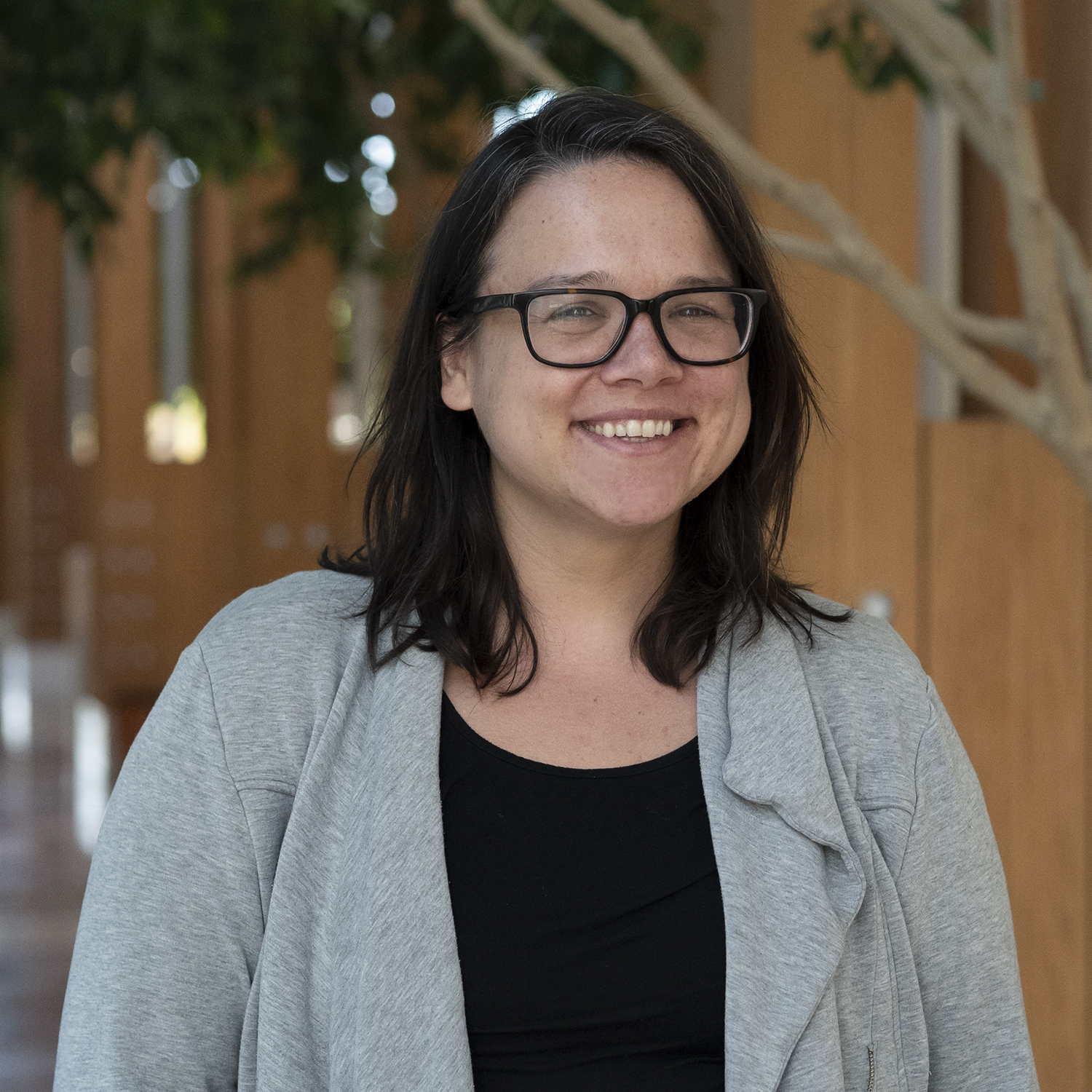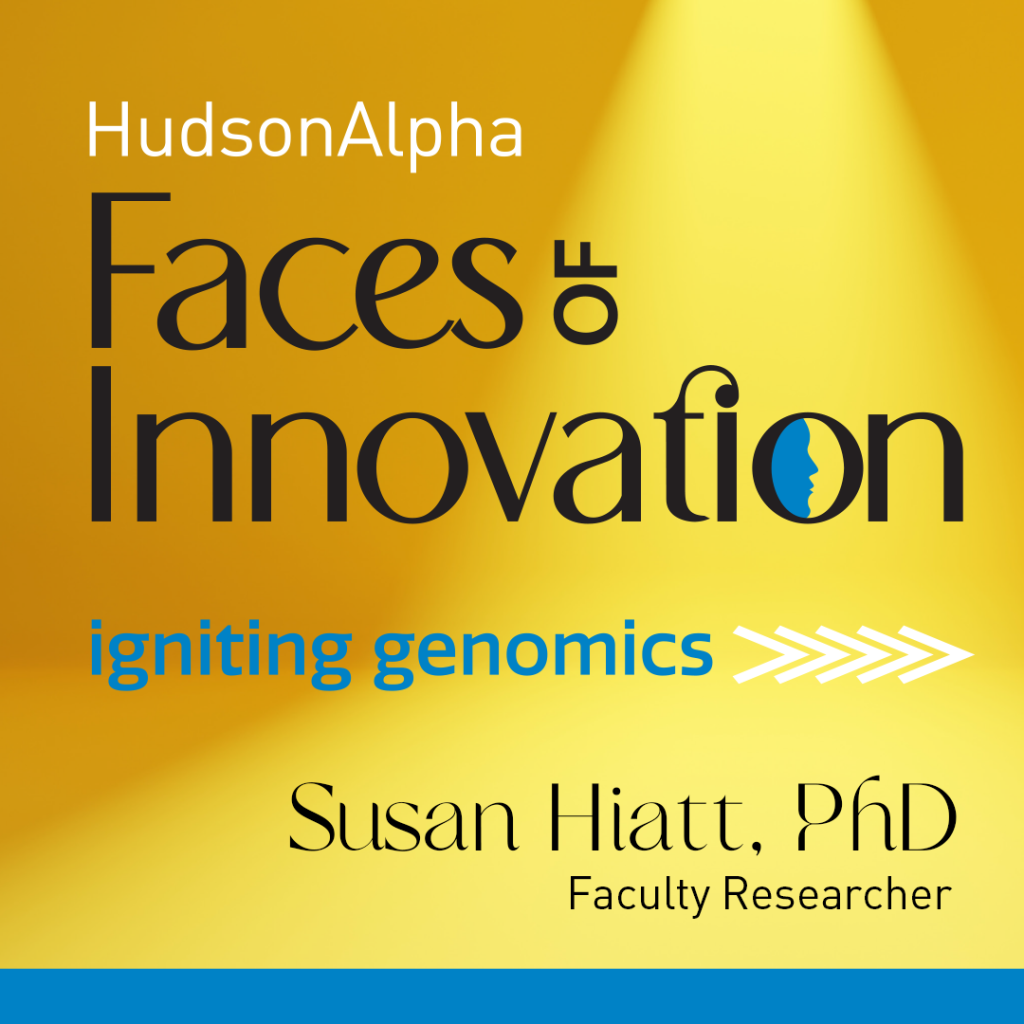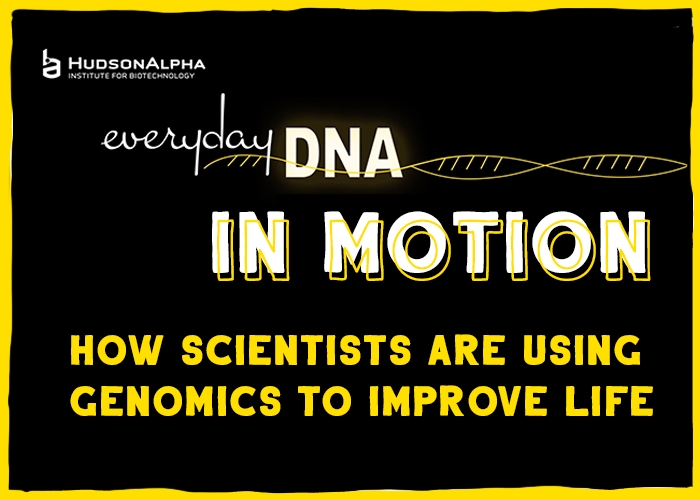May 18, 2021 (Huntsville, AL) – Stephanie Felker, a third year PhD candidate at The University of Alabama in Huntsville (UAH) who is doing her graduate research in Dr. Greg Cooper’s lab at the HudsonAlpha Institute for Biotechnology, has been selected by the National Institutes of Health (NIH) to receive a Ruth L. Kirschstein Predoctoral Individual National Research Service Award (F31). The competitive F31 grant program aims to enable promising predoctoral students with potential to develop into productive, independent research scientists, by obtaining mentored research training while conducting dissertation research.
Felker is a longtime member of the UAH family, obtaining both her Bachelor of Science degree in Biology and Masters of Science degree in Chemistry at UAH before joining the Biotechnology Science and Engineering Graduate Program at UAH.
“I have been fortunate to work with Stephanie,” says Dr. Paul Wolf, Professor and Chair of the Department of Biological Sciences at UAH. “She is one of the most motivated students I have encountered, always seeking better ways to explore her data and expand our understanding of complex biological systems. Stephanie is an inspiration.”
Sequencing the genome to diagnose rare disease
The focus of Felker’s graduate research is determining the genetic causes of various childhood neurodevelopmental disorders. The increased availability of whole genome and whole exome sequencing has revealed many disease-causing variants in neurodevelopmental disorders. However, in many cases, the genetic cause still remains unknown. Looking deeper into regions of the genome that do not code for proteins, called non-coding regions, can often provide a diagnosis when coding variation alone cannot explain the disease.
In the Cooper lab, Felker studies a newly discovered type of genetic variation called poison exon inclusion. Poison exons are naturally occurring, alternative exons (the part of a gene that encodes a protein) that contain a premature stop codon. Inclusion of a poison exon in mRNA signals transcription of protein from mRNA to stop. The resulting protein is truncated and will get degraded, resulting in less protein production.
Poison exons are believed to play an important role in gene expression and cell growth and development. However, it is becoming clear that certain variations in poison exons are involved in disease. For example, Cooper’s group previously showed that variants in a poison exon of the gene SCN1A results in loss of function, causing Dravet Syndrome, a neurodevelopmental disorder causing prolonged seizures in the first year of life.
“We are very fortunate that Stephanie picked our lab to pursue her graduate studies,” says Cooper. “She is not only a smart and talented researcher, but is also a dedicated, hard worker. I am happy that Stephanie’s hard work has been recognized with this award that will help her reach her goal of completing graduate school and moving onto an independent career.”
During her project, Felker will scale up her analysis to detect and assess new and known poison exon inclusion in more than 3000 genes associated with neurodevelopmental diseases and Autism Spectrum Disorder (ASD) in the developing brain. She will also look for variants in these poison exons in patients with neurodevelopmental disorders to try to determine if any of them are contributors to the disease.
“I am honored to receive this award,” says Felker. “It is not only very important for my graduate training, but also helps to fund this important research we are doing in the Cooper lab to help families find answers to their children’s undiagnosed illnesses. I hope that my proposed experiments will reveal new insights into alternative splicing in the developing brain and provide potential genetic explanation for more neurodevelopmental disorders.”
NIH allocates money for childcare amid COVID-19 pandemic
In addition to funding her research project, the F31 grant also provides a stipend for childcare for awardees who qualify. Understanding that many parents are staying home to work due to the pandemic, the NIH made the generous decision to give recipients with children money for childcare.
“This money is incredibly helpful, especially now when childcare is inconsistent due to the COVID-19 pandemic,” says Felker. “My husband is a healthcare worker so it is difficult for us when our children’s school is closed or entirely virtual. I am glad the NIH is recognizing that graduate students often require childcare, and will help alleviate some of the difficulties for parents in the early stages of academic training.”
About HudsonAlpha: HudsonAlpha Institute for Biotechnology is a nonprofit institute dedicated to developing and applying scientific advances to health, agriculture, learning, and commercialization. Opened in 2008, HudsonAlpha’s vision is to leverage the synergy between discovery, education, medicine, and economic development in genomic sciences to improve the human condition around the globe. The HudsonAlpha biotechnology campus consists of 152 acres nestled within Cummings Research Park, the nation’s second largest research park. The state-of-the-art facilities co-locate nonprofit scientific researchers with entrepreneurs and educators. HudsonAlpha has become a national and international leader in genetics and genomics research and biotech education and fosters more than 45 diverse biotech companies on campus. To learn more about HudsonAlpha, visit hudsonalpha.org.



